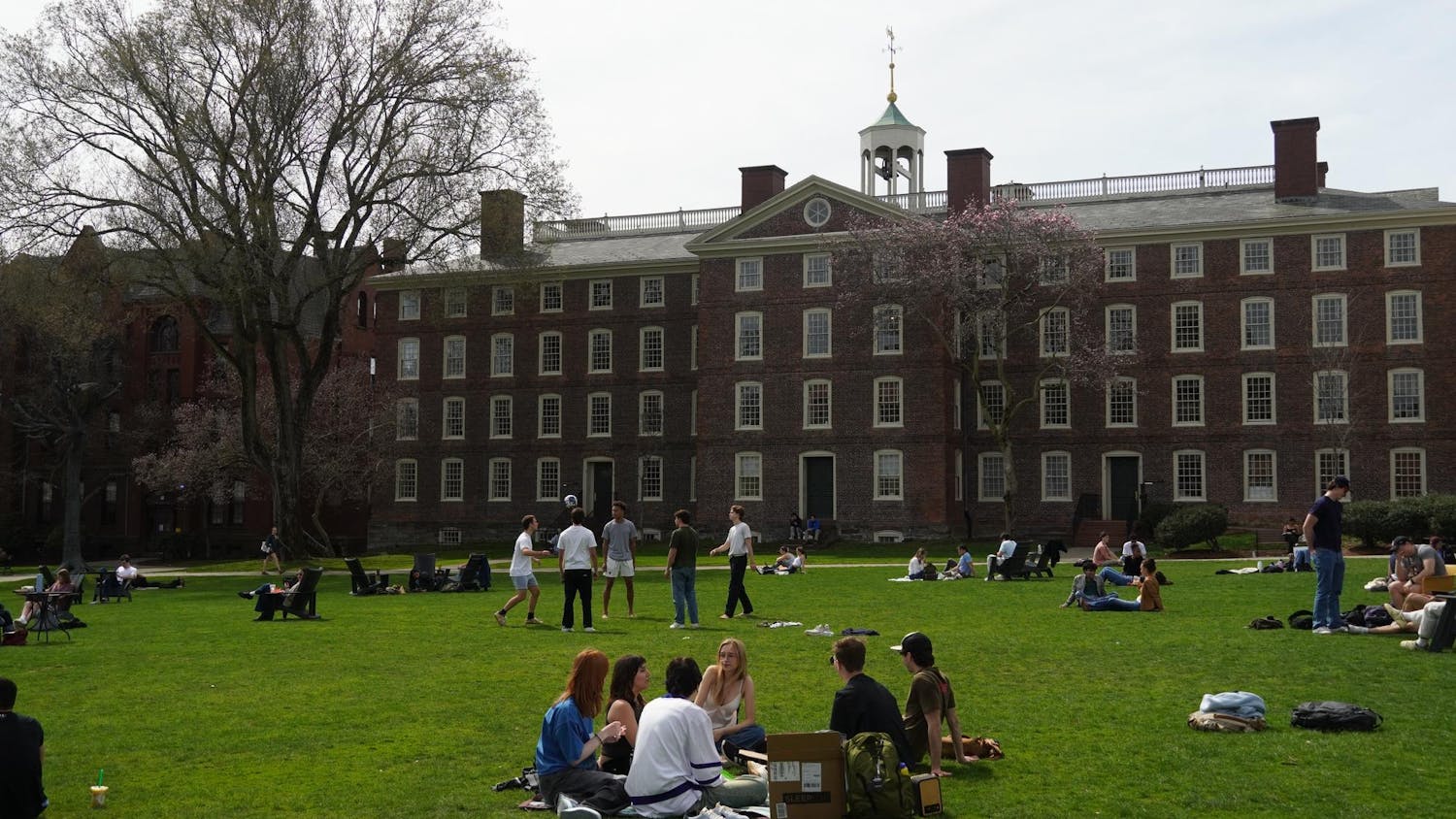When Caitlin Trujillo ’12 disagreed with the way Kansas legislators were handling issues of concern to constituents, she knew she wanted to take matters into her own hands. Lawmakers “were advancing legislation that I felt was detrimental to the state of Kansas and overlooking issues that we really needed to address more closely,” she recalled.
The recent Brown alum is running as the Democratic candidate for the 43rd district seat in the Kansas House of Representatives in an election that will take place Tuesday. She faces incumbent Republican Bill Sutton, R-Kan., in the primarily Republican district.
Kansas is a historically conservative state, with ties to the Republican Party in both national and local politics dating back several decades. The 43rd district, which includes the city of Edgerton and the towns of Gardner and McCamish in Johnson County, has leaned conservative for the past several years, according to Ballotpedia. Sutton defeated Kevin King, D-Kan., in 2012 and is now up for reelection, as representatives serve two-year terms. Both Trujillo and Sutton ran unopposed in their parties’ respective primaries in August, according to Ballotpedia.
Trujillo, who concentrated in political science and served as a Herald senior staff writer at Brown, is running on a platform that emphasizes education, tax reform, anti-discrimination policy and improved health care and welfare access.
James Egan, a professor of English who taught Trujillo at Brown, called her “smart, thoughtful and engaged” in an email to The Herald. He added, “I remember her as being pragmatic rather than ideological — someone who tried to find, through hard work and careful analysis, good solutions to tough problems.”
Education is a major focus for Trujillo, who feels personally connected to the issue having attended the Kansas public school system. Improving the state’s schools will require not only an increase in equitable funding but also a reassessment of the current system’s structure.
“You can put as much money as you want in education and that won’t solve all the inherent problems that money just can’t fix, but I also think that Kansas prides itself on having a strong public school system,” Trujillo said.
When a case about equitable funding for Kansas schools appeared before the state Supreme Court, “there were rumors that if the Supreme Court gave a ruling that the legislators did not like, they were going to change the way that justices were appointed,” she said.
The discussion about education reform in Kansas is taking place after the state Supreme Court’s finding that funds were not being equitably distributed among different schools, Trujillo said. “If we have to allocate more funds, how are we going to do that if we don’t have the money to fund what we currently have?” she asked. “If you have a tax policy that is producing revenue shortfalls, and that is not providing services to Kansans, that is going to not present Kansas as a desirable place to live.”
Tax reform is also a priority for Trujillo, especially in light of Gov. Sam Brownback, whose “administration has instituted some of the largest tax cuts across the board that the state has ever seen,” she said. “You can’t talk about education without talking about funding, and you can’t talk about funding without talking about tax policy,” she said. “One of things I would like to do if elected is to reassess our tax policy, which is controversial because you have to think ‘do we raise taxes,’ and nobody wants to raise taxes.”
Anti-discrimination also emerged as a concern for Trujillo after she felt the state government faltered on the issue. She was especially disappointed in the Kansas House of Representatives for trying to pass House Bill 2453, which “was ostensibly a religious freedoms bill, but essentially it would have legalized some discrimination against same-sex couples in the state as well as people in the LGBTQ community,” she said.
If elected, Trujillo said she would “scrutinize” the religious freedom bill, adding that she “would probably oppose it … unless it presented a compelling need for something like that, that doesn’t allow for discrimination.”
She also said that though marriage equality laws would likely be determined by state courts, she personally believes that “sexual orientation and gender identity should absolutely be federal categories for anti-discrimination law.”
Trujillo said she supports the expansion of Medicaid, particularly in light of her personal experiences with the healthcare system when her brother became gravely ill. Her mother, who was laid off during Trujillo’s final semester at Brown, applied for insurance through Medicaid to pay the medical bills, which “probably would have bankrupted our family otherwise,” Trujillo said.
Conversation about expanding Medicaid is difficult “because of the current climate, which is not very favorable towards it in the legislature,” she added.
Trujillo’s own experiences with financial hardship — she was at one point the sole breadwinner for her family — have informed her views on social services. She stressed the importance of “one, doing what we can to ensure that people aren’t in that situation in the first place, and two, making sure that there are some safety nets for people, so that worst case scenario they have something so that they don’t end up homeless or starving.”
Trujillo’s background in political science has helped her handle the contingent of gun enthusiasts in her district. “We can talk about second amendment rights, we can talk about civil liberties, but at the same time, public safety is a huge issue,” she said. “It has helped influence my thinking in how to approach these issues in a way that obviously doesn’t infringe on anybody’s constitutional rights, but is also in the public good.”
But some aspects of campaigning have called for a completely new skill set. “A lot of the campaigning stuff, a lot of the political theater … it’s not something that I really focused on when I was in school, so that has been an education in and of itself,” she said. “I had never canvased before; prior to this election, I had never done it before in my life.”
Michael Vorenberg, associate professor of history, wrote in an email to The Herald that he remembers Trujillo as “particularly enthusiastic about all things Kansas because that was the place she considered home.” He added that he was enthusiastic about her campaign. “It’s great to see that she’s still passionate about Kansas — so much so that she’s wanting to help lead Kansas as a state legislator at a time of great crisis in the state.”
ADVERTISEMENT




